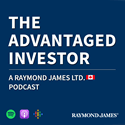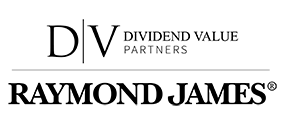Update from Fixed Income Trading Desk

Head Fixed Income Trader Harvey Libby makes his regular appearance on the podcast to provide an update from the fixed income trading desk, including:
- Review of the last quarter
- Rates
- Opportunities
- Inflation
- Where we are headed
Follow the podcast on LinkedIn: The Advantaged Investor
Please subscribe, rate and review. Reach out at advantagedinvestorpod@raymondjames.ca
Transcript
Chris Cooksey: Hello and welcome to the Advantaged Investor, Raymond James Limited podcast, a podcast that provides perspective for Canadian investors who want to remain knowledgeable, informed, and focused on long term success. We are recording this on November 2, 2023. I'm Chris Cooksey from the Raymond James Corporate Communications and Marketing Department, and today Head Fixed Income Trader, Harvey Libby returns to the show to discuss his views from the Fixed Income Trading Desk. Harvey, welcome back to the podcast. Hope you're doing well. Always a pleasure to connect with you, my friend.
Harvey Libby: Well, thanks, Chris. Same to you.
Chris Cooksey: Excellent. As always, lots to get to, so we'll jump right in and maybe we'll just start off with as mentioned, you’ve been on the podcast quite a few times and so since the last time, maybe we can just get a little review of what's going on in your world.
Harvey Libby: Sure, I think last time we were talking we keep talking about economists views for the next like six months out, and each time they keep saying that rates will go lower and take advantage of our fixed income markets as they are right now. That said they keep pushing that out another six months, their view on when rates will start trickling down. So over the last six months, we've had a little bit of an uptick in rates, which is even better for most sorry, not advisors, but clients out there that can take advantage of the bond market. So we've had slightly higher yields. Until a couple of days ago since October 31, which what, three days ago, two days ago, rates have gone drastically down in Canada and the U.S., so we've gone down, well, drastically 11 basis points in Canada for two year, about 20 basis points in a 10 year and close to 20 on a 30 year bond. Basically that's, with FOMC and Bank of Canada making announcements over the last week, just kind of standing pat in their rates, and economists and investors, thinking that rate hikes are over now and the worst is behind us, stuff will start to yield to start trickling downward, which has happened obviously in the last two days. We're trying to get clients to make sure they invest and make sure they invest out the curve to try to take advantage of these phenomenal rates that we haven't seen in, you know, 10 years.
Chris Cooksey: Now in terms of opportunities, what are we looking at in terms of that right now? Has it been pretty consistent or are there newer instruments that people are going towards?
Harvey Libby: I'm not sure if I touched on this last time, I believe I did, about the after tax opportunities in the market. They seem to be the best solution for most clients. Right now you can do a one to five year after tax ladder, meaning you buy one bond every year for five years out and it's yielding around over 5%, 5.05% this morning. That gives you the opportunity to take advantage of the market. It gives you a very safe way to be in the market because you have something maturing every year. So every year when something comes due, you get to reinvest in the new market or in the new rates that are available at that time. It's one of the safest ways to buy into a into the bond market. And also, you are experienced the after-tax potential of discounted bonds in a in a taxable account. That said, we always tell you to talk to your accountant. We aren't, we are not accountants. So you should speak to your accountant and see if that, you know, does work for you. A lot of people are doing that Chris, also a lot of people are still buying GICs. If you have a GICs go back and forth with regular bonds, what is yielding better? You should always check if the GIC that you're buying actually is equal to or better than what the actual market is in Canada, because GICs lag the market. They're not as quickly to change rates as the actual bond market. The bond market is quick to lose 20 basis points in yield as it's done the last couple of days. A week ago, I would tell you have to buy a bank corporate bond. And now over the last couple of days, with the rates lowering so drastically we go back to, you can buy yourself a GIC if it's in a non-taxable account. It makes a lot of sense. Still in a taxable account, a corporate, where you could take advantage of after-tax potential, is probably your best bet.
Chris Cooksey: I guess too, this highlights, I think people may think that the fixed income markets, the sleepy market that moves around. Of course, the industry knows that it's by far the largest market. It's much bigger than the equity market. And it really shows that it can change drastically, so it's important to be up on this regularly rather than just assuming that everything stays the same month to month, week to week.
Harvey Libby: Oh definitely, it's the biggest market in the world in the US, the biggest market in the world and Canada and the biggest market goes a lot quicker than everyone thinks, I think, you know, but like, bottom line is economists out there on the Street still think that rates are going lower, right? So, it's basically, if you can stomach these great rates, you got safety of capital, you got high quality issuers out there that you can buy in the bond market you know, it's time to purchase some bonds. It's been phenomenal for me for the last year, right? I was sitting on my hands for 10 years and now, I don't have time to make myself lunch, right? It's been fantastic how busy we have been. If you look at the economist view, they think that rate hikes are basically over our next FOMC like, or the chance for them to raise rates or keep rates the same on December 6, chances are zero that they're going to do anything on that date.
Chris Cooksey: Not going to put any coal in the stocking, so to speak.
Harvey Libby: No, exactly. But the chances that the rate probability right now, is that by June or July next year, we might actually have a rate cut. That's a thing to look at and get your eggs in your basket now, while you have a chance at these great rates and try to lock in for five years. But if you can't lock in for five years, at least, you know, get out there one year, two years, you know, that kind of thing.
Chris Cooksey: Right. So it's always hard to pick the top of the rate cycle, but you can definitely see it coming in the near future. So once you get to the top, obviously they don't increase further from that point, so what you're saying is now's the time to start looking and if this is the right product or right situation for you, the rates might be as good as they're going to get for the foreseeable future.
Harvey Libby: Correct. Also with safety of capital and the high quality of the investment, you're still getting paid. Like you're still getting over 5% right now, and compare that to equity markets, it's very attractive right now. If you listen to the CNBCs, the BNNs of the world, they just keep saying that most managers or portfolio managers are saying are, are coming on and actually saying, yeah, we're putting money to work in the bond market now, because it makes sense, it didn't make sense two years ago. It did make sense for some people, but it just didn't make sense at one, 2%, you know, it wasn't attractive. How about that? It makes sense. It always makes sense to have a certain percentage in bonds because it is defensive. But you know, it makes way more sense right now. That's for sure. And I think the other thing, Chris, that we haven't talked about and sorry, I should have brought this up earlier, is inflation. We usually say something about inflation and like the CPI year-over-year last month in Canada was 4%. Well, I guess it spiked almost to 8% one point. And now it's down to 4%. Ideally, Bank of Canada wants it around 2%, they thought it would be back there by now. Economists like a year ago thought, we'd be closer and we are, it, the trend is getting lower, that's for sure for inflation. So, you know, and that will help the bond.
Chris Cooksey: Obviously Bank of Canada just paused the last meeting and one of the reasons given was people got mortgages coming up and if we raise rates too much, then we could sort of push ourselves in a different crisis. so inflation is still out there despite it's coming down and the Bank Canada is obviously still worried about it.
Harvey Libby: Yeah, definitely. I just was talking to a friend of mine about that as well. Mortgage coming due and it's what should I be doing? And the rates. I looked at the rates and I couldn't believe how high they are, but I guess that makes sense from where bond markets are, but, look at them from a year, year and a half ago compared to now, and it's scary and people have to come up with so much more money now. He had something that was going about six months ago, he could have locked-in, and it's going to be costing him about $700 a month more to lock in. Yeah, like that's a big number for a short amount of time too.
Harvey Libby: Oh big time Yeah, it's crazy
Chris Cooksey: Well, Harvey, I'd like to thank you for taking the time today. Always enjoy our talks and I always learn something. So we'll talk again soon.
Harvey Libby: Okay. Thank you. Take care.
Chris Cooksey: Alrighty, reach out to us at AdvantagedInvestorPod@RaymondJames.ca. Subscribe to The Advantaged Investor on Apple, Spotify, or wherever you get your podcasts. Please contact your advisor with any questions you have. On behalf of Raymond James and The Advantage Investor, thank you for taking the time to listen today. Until next time, stay well.
This podcast is for informational purposes only. Statistics and factual data and other information are from sources Raymond James Limited believes to be reliable, but their accuracy cannot be guaranteed. Information is furnished on the basis and understanding that Raymond James Limited is to be under no liability whatsoever in respect thereof. It is provided as a general source of information and should not be construed as an offer or solicitation for the sale or purchase of any product and should not be considered tax advice. Raymond James Advisors are not tax advisors and we recommend that clients seek independent advice from a professional advisor on tax related matters. Securities related products and services are offered through Raymond James Limited. Member of the Canadian Investor Protection Fund. Insurance products and services are offered through Raymond James Financial Planning Ltd, which is not a member of Canadian Investor Protection Fund.






